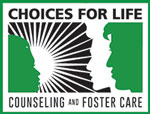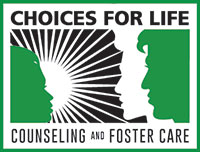Being a foster parent is a rewarding journey that requires preparation and dedication. As you eagerly await your first placement, it’s important to equip yourself with knowledge and resources to ensure a smooth transition. Here are 11 essential ways to prepare for your first placement as foster parents:
- Build a Supportive Network: Seek out individuals who can walk alongside you on this journey. Connect with experienced foster parents, join support groups, and build a tribe of people who understand and support you.
- Educate Yourself About Childhood Trauma: Learn about the effects of trauma on the developing brain. Understanding how trauma impacts children will help you provide appropriate care and support tailored to their specific needs.
- Nurture Your Spiritual Well-being: Dive into God’s Word and cultivate a deep relationship with Him. Trust in His guidance and lean on His strength throughout this journey.
- Avoid Overloading on Material Possessions: While it’s important to have the essentials for the age group you plan to foster, avoid accumulating excessive amounts of clothes and toys before the child arrives. Focus on the immediate necessities and remember that community resources and fellow foster families often provide support in this area.
- Prepare a List of Questions: Create a list of questions to ask when receiving a call from Child Protective Services (CPS) regarding a potential placement. Gathering as much information as possible will help you make informed decisions about accepting a placement.
- Develop Strategies for Dealing with Opposition or Ignorance: Be prepared for unkind comments or questions about foster care. Practice responding with grace and educate others about the realities of foster care. Pray for understanding and kindness within your community.
- Learn About Different Cultures and Perspectives: Educate yourself on different cultural aspects, especially if you anticipate caring for children of diverse backgrounds. Seek resources such as multicultural Facebook pages, blogs, or classes offered by your foster care agency to better understand and navigate cultural differences.
- Understand Meeting Terminology: Familiarize yourself with the various types of meetings you may encounter in the foster care system, such as caseworker visits, sibling visits, ACRs (Administrative Case Reviews), and more. Keep a document or list of these meetings to better comprehend their purpose and significance.
- Research Local Community Resources: Prioritize learning about the resources available in your community, such as early intervention programs and developmental testing services. Being informed will enable you to advocate for the children in your care effectively.
- Create a Plan for Your Forever Kids: If you have children already living in your home, establish family boundaries, rules, and systems that consider the needs and voices of all family members. This will help maintain a sense of stability and structure when a new child is placed in your home.
- Seek Encouragement and Resources: Explore resources such as The Forgotten Initiative’s podcast, blog, and other supportive materials designed specifically for foster parents. These resources can provide valuable education and encouragement on your foster care journey.
Remember, while it’s impossible to be fully prepared for every aspect of foster care, connecting yourself to resources and support networks will help guide you along the way. You are not alone. Embrace this meaningful journey with open hearts and open minds.
Whether you are seeking support for deciding if fostering is for you, or how best to welcome your first foster child, Choices For Life is dedicated to walking alongside you and your family. Reach out to Choices For Life today and take the first step towards fostering a healthier and happier future for your loved ones.


